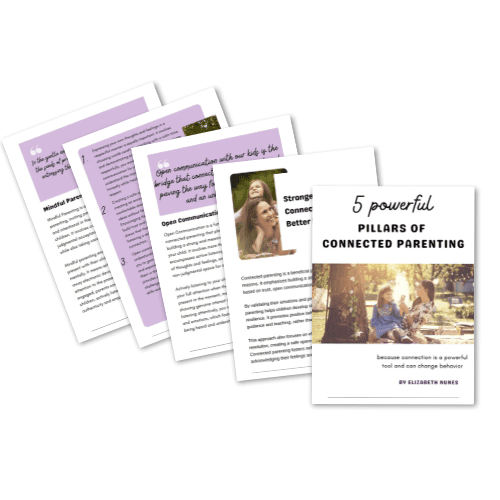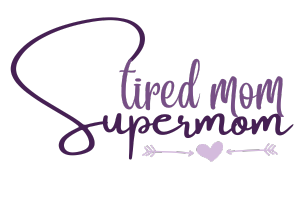100+ Simple Tips For Positive Parenting While Out In Public
Being a parent is a demanding role, especially when faced with the challenge of managing your child’s behavior in public places.
Picture this: you’re at the grocery store, the park, or a restaurant with your energetic three-year-old daughter.
Suddenly, she decides to express herself in ways that catch the attention of everyone around, leaving you with a mixture of stress and embarrassment- bee there!
In these moments, it’s crucial to hold onto the knowledge that employing positive parenting techniques can be your anchor.
By setting clear expectations, implementing positive reinforcement, and embodying positive behavior yourself, you can guide your child towards appropriate conduct in public settings.
Let’s delve into practical tips and strategies for positive parenting while you’re out and about, all aimed at helping both you and your child enjoy a smoother, less stressful experience.
This post may contain affiliate links. Full privacy policy and disclosure here.
Tips For Parenting Positively In Public
- Be patient and understanding of your child’s behavior.
- Set clear expectations and boundaries before leaving home.
- Plan outings that are age-appropriate for your child.
- Bring snacks and drinks to prevent hunger or thirst-related meltdowns.
- Pack a bag with essentials like diapers, wipes, and a change of clothes.
- Use positive language when communicating with your child.
- Offer praise and encouragement for good behavior.
- Model respectful behavior towards others.
- Teach your child about personal space and boundaries.
- Practice active listening when your child wants to talk.
- Avoid yelling or using harsh discipline in public.
- Take breaks if your child becomes overwhelmed.
- Have a backup plan for unexpected situations.
- Bring toys or activities to keep your child occupied.
- Use redirection to guide your child’s attention away from potential conflicts.
- Respect your child’s need for independence within safe limits.
- Be consistent with your rules and consequences.
- Teach empathy by discussing the feelings of others.
- Choose your battles wisely and prioritize safety.
- Offer choices to give your child a sense of control.
- Stay calm and composed, even if your child misbehaves.
- Practice deep breathing and self-regulation techniques.
- Use humor to diffuse tension when appropriate.
- Encourage your child to use their words to express feelings.
- Avoid comparing your child to others or making negative comparisons.
- Be flexible and willing to adapt to changing situations.
- Allow your child to explore their environment within safe boundaries.
- Avoid over-scheduling or exhausting your child.
- Teach your child about waiting patiently and taking turns.
- Foster a sense of responsibility by involving them in tasks.
- Apologize if you make a mistake and model accountability.
- Stay engaged and present with your child.
- Show appreciation for your child’s efforts and cooperation.
- Avoid overreacting to minor misbehavior.
- Create a positive routine for transitions and outings.
- Offer rewards or incentives for good behavior when appropriate.
- Teach your child to use polite words like “please” and “thank you.”
- Set a good example by using polite language yourself.
- Encourage your child to be curious and ask questions.
- Practice active supervision to ensure safety.
- Avoid using electronics as a distraction for extended periods.
- Teach your child about respect for public property.
- Help your child understand cultural and social norms.
- Use storytelling to convey important values and lessons.
- Support your child’s emotional needs in public.
- Be prepared to address questions or comments from strangers.
- Seek out parent support groups or resources for guidance.
- Celebrate small victories and improvements.
- Maintain a positive attitude and focus on the joys of parenting.
- Remember that every child is unique, and what works for one may not work for another.
- Teach your child about personal hygiene and cleanliness.
- Encourage sharing with others when appropriate.
- Be a good role model for conflict resolution.
- Practice gratitude and teach your child to appreciate what they have.
- Offer choices that allow your child to express their preferences.
- Use positive reinforcement, such as a small reward system.
- Avoid using bribery as a means of getting compliance.
- Allow your child to take part in decision-making when appropriate.
- Help your child identify and label their emotions.
- Use timeouts as a last resort and explain their purpose.
- Create a visual schedule to help your child anticipate activities.
- Show affection and physical touch as a form of reassurance.
- Encourage your child to greet others politely.
- Teach your child about diversity and inclusion.
- Be mindful of your tone and body language.
- Practice active problem-solving when issues arise.
- Teach your child about the importance of personal boundaries.
- Encourage your child to use their manners in public.
- Respect your child’s need for downtime and rest.
- Be consistent with routines to provide a sense of security.
- Use positive affirmations to boost your child’s self-esteem.
- Allow your child to express creativity through art or play.
- Offer praise for effort rather than just results.
- Teach your child about empathy by discussing different perspectives.
- Encourage independence by letting them make age-appropriate choices.
- Teach your child about online safety and responsible internet use.
- Model problem-solving and resilience in the face of challenges.
- Use storytelling to convey important life lessons.
- Foster a love for reading by visiting libraries and bookstores.
- Teach your child about financial responsibility and budgeting.
- Offer opportunities for your child to socialize with peers.
- Encourage your child to explore their interests and passions.
- Create a family tradition or ritual that promotes togetherness.
- Teach your child about environmental responsibility.
- Help your child develop a growth mindset by praising effort.
- Practice active listening and validate your child’s feelings.
- Teach your child about the value of hard work and perseverance.
- Set realistic expectations for your child’s behavior in public.
- Encourage your child to express their individuality.
- Teach your child about the importance of safety in public spaces.
- Practice mindfulness and teach your child to stay present.
- Create a family code of conduct to promote respectful behavior.
- Encourage your child to apologize when they’ve made a mistake.
- Teach your child about consent and personal boundaries.
- Promote healthy eating habits and balanced nutrition.
- Encourage your child to be kind and helpful to others.
- Set aside quality one-on-one time with your child.
- Teach your child problem-solving skills and critical thinking.
- Celebrate achievements and milestones, no matter how small.
- Practice patience and remember that parenting is an ongoing learning process.
- Teach your child about responsible citizenship and community involvement.
- Encourage your child to show appreciation for nature and the environment.
- Practice active supervision when your child interacts with pets or animals.
- Teach your child about the importance of privacy and respecting others’ personal space.
- Promote problem-solving skills by involving your child in resolving family conflicts.
- Foster a sense of curiosity and wonder about the world around them.
- Encourage your child to take responsibility for their belongings and keep track of their belongings when out in public.

Get Your Free Download
Take your parenting journey to the next level with our comprehensive ebook on Connected Parenting.
Download this ebook now and embark on a transformative parenting experience that will strengthen your bond with your child and bring joy and fulfillment to your family life.
Download Here
Want More On Parenting?
- Debunking Common Misunderstandings About Positive Parenting
- Positive Discipline Techniques: Teaching Children Without Punishment
References
- Triple P-Positive Parenting Program: Sanders outlines the Triple P-Positive Parenting Program as a multilevel system of family intervention designed to reduce behavioral and emotional problems in children. This program emphasizes the importance of positive parenting techniques and offers strategies for parents to manage their children’s behavior effectively (Sanders, 1999).
- Positive Parenting and Brain Development: Whittle et al. show that positive parenting predicts the development of crucial brain structures in adolescents, highlighting the long-term benefits of positive parenting practices on children’s emotional and behavioral regulation (Whittle et al., 2013).
- Online Coaching for Parents: David, Capriș, and Jarda discuss the efficacy of online coaching of emotion-regulation strategies for parents, including the Online Rational Positive Parenting Program, emphasizing the role of positive parenting in promoting healthy child development (David et al., 2017).
- Parental Responsiveness and Warmth: Davidov and Grusec highlight the distinct linkages between parental responsiveness to distress and warmth to various aspects of children’s socio-emotional functioning, advocating for positive parenting practices that include warmth and responsiveness (Davidov & Grusec, 2006).
- Triple P’s Impact on Fathers’ Parenting: Fletcher, Freeman, and Matthey analyze the effectiveness of the Triple P program on fathers’ parenting practices, demonstrating the positive impact of engagement in such programs on improving parenting practices across both mothers and fathers (Fletcher et al., 2011).







